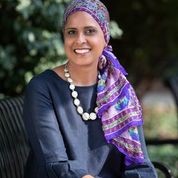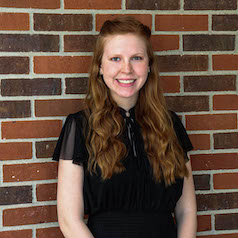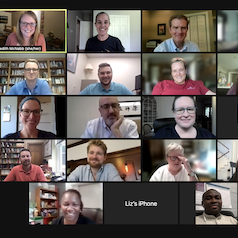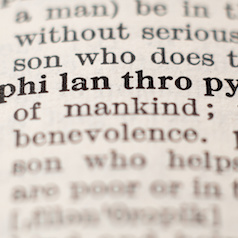Community-Focused Muslim Philanthropy
Community-Focused Muslim Philanthropy
Our guest writer, Dilnaz Waraich, is President of the WF Fund. The purpose of the WF Fund is to carry out the philanthropic purposes of the Waraich Family. The WF Fund implements the giving principles of the Waraich family which are rooted in their deeply held Muslim faith and family values.
Philanthropy is deeply rooted in the Muslim tradition. When I was a child, the month before Ramadan my immigrant parents would sit at the kitchen table with my sister and me to discuss how our family could give back. They would tell us about a family relative back in India who could use our help. Maybe it was for something critical, like surgery; or something invaluable, like education; or something practical, like a sewing machine! My working-class family’s support was not extravagant, but we did what we could. This experience taught me that, even as a child, I had the power to make a transformational difference in others’ lives.
My husband and I are fortunate to continue the tradition of sitting at the kitchen table with our two sons to discuss our family values and the organizations we want to support in our community. During one of those conversations a few years ago, we realized we weren’t prioritizing Muslim American-led nonprofits in our philanthropic giving—so we decided to change that. Our family was curious if Muslim-led nonprofits could be supported in a way that could help them move away from a scarcity mindset to a mindset of abundance. The outcome of that family discussion was the funding of a three-year study project called the Community Collaboration Initiative (CCI) that focused on building trust and a collaborative culture among a select group of Muslim-led organizations.
These organizations worked closely with CCI to deepen their collaborative skills. In 2022, the third and final year, the organizations formed five teams working towards common goals. To incentivize the organizations for participating in this time-intensive process and foster a more collaborative mindset, CCI launched the $1M Muslim Collaboration Prizes, at the Indiana University Lilly Family School of Philanthropy.
Circumstances Influence Philanthropy
With zakât as one of Islam’s core expressions, a history of over 1400 years, and 1.6 billion Muslims in the world, there is much nuance in Muslim philanthropy. The United States itself has experienced over 400 years of Muslim philanthropy, because of the roughly ten percent of enslaved persons forced onto slave ships who were Muslim, and who chose to carry forward these Islamic traditions. While one would not expect enslaved persons to give zakât, research conducted by Dr. Shariq Siddiqui suggests that zakât was practiced within the population of enslaved persons. Enslaved persons in Georgia are reported to have saved small quantities of the rice they harvested every day and small quantities of sugar from their rations. The women would then make a saraka cake for the children to eat. Having no money, they did the only thing they could to continue to practice the charity that their faith asked of them. Their faith and circumstances influenced the nature of their philanthropy.
As our family focused on becoming more strategic donors, we read articles and spoke to people to better understand the approaches of private foundations and Donor Advised Funds (DAF). Both vehicles are used by donors to distribute assets philanthropically. Our family realized that, at the most basic level, a DAF is not a separate legal entity, while a private foundation is. A donor to a DAF is entrusting assets to the board of the public charity sponsoring the DAF. This is a completed charitable gift. The donor receives nothing in exchange except the expectation of advisory privileges over charitable distributions from the DAF and/or the investments held in the DAF. Advisory privileges do not equate to control, and donors to a DAF should clearly understand they are ceding control of these assets to the board of the public charity sponsoring the DAF.
Donor Advised Funds
After going through the discernment process, our family decided to open a DAF at Chicago Community Trust (CCT). A DAF can be established in as little as a day or two. We chose a community foundation for our DAF so that the local communities supported by that foundation would benefit. (As Chicago was our backyard, we wanted to help non-profits in that backyard first!)
The WF Fund is now investing in a five-year project to better understand if community foundations are fully living into their mandate by developing relationships with Muslim-led nonprofits. The WFF theory of change is to uplift Muslim-led nonprofits while opening doors to funding from community and private foundations. While Muslims are only 1.1% of the U.S. population, Muslim-led nonprofits are doing impactful work; however, they are not getting equitable funding from the larger community. How can the WFF build relationships between community and private foundations and Muslim-led nonprofits to increase funding opportunities? As our research in community foundations continues, I will share our findings.
When our family opened a DAF at the Chicago Community Trust, we already had experience with philanthropic tools, and we still utilize many of them today. The next step in our journey was engaging through the community foundation DAF ecosystem. Our curious question was whether community foundations were equitably distributing assets to all members of their community. We sought to highlight the organizations in our giving portfolio, specifically Muslim-led organizations, to demonstrate the need for – and results from! – funding in these communities.
Strategic Philanthropy
My greatest role model in this philanthropic work is Khadija (RA) who was a holder of considerable wealth, a prominent businessperson, and the Holy Prophet’s first wife. I think about what it means to do this work with compassion, urgency, collaboration, and trust. I have found a purpose, and I want to use this work to create a platform for strategic philanthropy, so Muslim women can tell their own philanthropic story and not have someone else tell it for them.
As children and grandchildren of immigrants, we want to pay it forward. We want to do this work because we want to create a better America for all, while learning from our ancestors.
 Dilnaz Waraich, President of the WF Fund, is a philanthropic advocate, community builder, educator, and interfaith leader with more than three decades of experience in relationship building, cultural sensitivity facilitation, spiritual engagement, and civic empowerment. A current Fellow with the National Center for Family Philanthropy, Dilnaz also serves her Chicago community as a board member at the Catholic Theological Union, Chicago Public Media, and the Pillars Fund.
Dilnaz Waraich, President of the WF Fund, is a philanthropic advocate, community builder, educator, and interfaith leader with more than three decades of experience in relationship building, cultural sensitivity facilitation, spiritual engagement, and civic empowerment. A current Fellow with the National Center for Family Philanthropy, Dilnaz also serves her Chicago community as a board member at the Catholic Theological Union, Chicago Public Media, and the Pillars Fund.
Questions for Reflection
-
- How does your family’s history impact your giving today?
- Who, in your faith tradition, inspires you to be a philanthropist? Why?
Expanded Perspective

Families and Generosity
by Avery Crews Prado de Lima
Our individual families shape many of the behaviors that we have and can often influence the way we view the world and our role within it. Family history is an important aspect to consider when looking at the actions and decisions that someone makes in their daily lives. Generosity is one of those actions, and looking back in my own family, I see examples of how their generosity shaped my views of philanthropy today.
As a child my parents allowed and encouraged me to pursue personal interests and connections. Whether that was reading every Nancy Drew book ever written or volunteering to read with elementary school students, my interests were treated as valuable and worthy of cultivating. Philanthropy and giving were given similar value. While we were expected to engage in tithing as a family during mass, we were also offered opportunities to give to people and organizations that we cared about. I remember being given the option to select the organization where we would donate supplies or time. Having this choice helped expose me to many different types of charitable organizations and showed me the value of giving my time.
Looking back now as a graduate student in a philanthropic studies degree program, having the freedom to pursue my own methods of giving from a young age positively shaped my view of giving. Numerous studies have shown that children model giving without being taught, but I believe that having a positive family tradition of giving together further develops that innate desire to give back to others. Giving showed me that I had the capacity to impart change upon the world around me, even if it was simply by donating a dollar to support a certain project or choosing a child’s name to purchase supplies for. I believe my family is an important part of everything I do and their role in the way I understand generosity is invaluable.
A Few Spots Remaining
Our next online cohort of the Executive Certificate in Religious Fundraising starts soon and there are a few spots remaining! We surveyed our participants a year after taking the course and one wrote that through ECRF they gained “confidence, direction as an executive fund raiser, ability to engage in fundraising conversations from a faith-based perspective.” Another wrote that they gained “a confidence that I can be a part of these discussions despite the fact that I don’t have unlimited means.” Wherever you find yourself on this spectrum, we are confident that you will gain the skills and tools you need to grow as a religious fundraiser!
Learn More About Muslim Philanthropy
We’ve curated a selection of resources for you to explore and learn more about the field of Muslim Philanthropy in the US. Did you know that the IU Lilly Family School of Philanthropy is the home of the Muslim Philanthropy Initiative (MPI), established in 2017? They conduct research, hold training programs, and convene philanthropic leaders. In addition to MPI, here are some other resources to check out:
#MuslimPhilanthropy podcast
“Muslim Philanthropy: Living Beyond a Western Definition” by Dr. Shariq Siddiqui
World Congress of Muslim Philanthropists
“Why Supporting A Muslim Charity Helps Our Community” from the Zakat Foundation of America
Subscribe
Insights is a bi-weekly e-newsletter for the religious community and fundraisers of faith-based organizations that provides:
- Reflections on important developments in the field of faith and giving
- Recommended books, studies and articles
- Upcoming Lake Institute events



